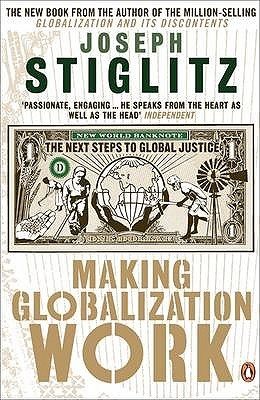Your Talking Point for the Week

Capitalism: A Broken System or a Violated Success?
Anyone can argue that capitalism is the economic way forward for mankind and human innovation. This ideology drives people to create, innovate, improve and be better than the competition. As a consequence, the consumer gets a spoilt selection of goods & services in industries which are eternally looking to improve themselves and better the customer. All of this in the pursuit of Profit.
Sounds good huh ?
The core values, yes they are good. However, we’ve seen over time whether that be current day or recent past that capitalism has come face to face with much adversary. The most common enemy being Communism, which epitomizes everything that capitalism stands against. As human beings we are driven by self-interest, it is only natural, you could go as far to say that it is a survival instinct. That any being with the capacity to think and act will do so in its self interest in order to survive and prosper as a being and as a race. Hence, within this ideology, mankind has found ways to twist its values in order to best suit their personal gains: ex: Below minimum wage pay, tax evasion, slavery, fraud ...etc. The list could stretch to the very beginning of commerce.
However, despite the tone that this article has already taken I am not against capitalism. On the contrary, I am all for it. It is the force that drives us to become better than we are via a collaboration between other talented beings or as an individual thus shaping our society as a whole.
Capitalism is the way forward and it is responsible for numerous technological, political & health changes both good and bad. Today we talk about how the system is broken, and how our new generation will have to solve issues such as the banking system. Do I need mention 2008?
I would like to underline that our system is not broken, but it is being twisted by those who put their self-interest before any other. That if people were to actually play by the rules and for those rules not be to manipulated we would live in a much fairer society. Here are some of the most pressing examples that I would like to show you.
Sending Money Home
Immigrants from the poorest countries travel far and wide throughout the world in order to work and create a better life for themselves. For millions of immigrants, family is the main reason (Indian workers in Qatar, Polish workers in the UK) for their economic travels, as they then send money home for their well-being. The only problem is that these remittances are highly regulated and extortionately charged.
The ted talk below goes into fantastic detail:
"Making Globalization Work" - Joseph Stiglitz
Nobel prize winner Joseph Stiglitz wrote a fantastic book about globalization. Many people think that he criticizes globalization but he merely goes over how it should be in order to work. Trade deals favoring developed economies in their preferred industries (services & finance in addition to high tech industry) are made with developing countries (or lesser developed) on their terms, so naturally the less powerful nation/economy doesn’t want to lose any potential deals. In addition to bi-lateral trade agreements, government subsidiaries (USA Corn making global prices fall affecting the poor farmers on the other side of the world), inefficient tariff barriers. This paints a perfect picture of the terrible failure that was the World Trade Organisation Doha round. The list goes on. However, what the world is slowly starting to realize is that their prosperity is also ours, developed countries are shooting their long term trade prospects in the foot.

Tax Evasion & Government Debt
This is a point which I believe has a huge role to play in the current misfortunes of our global financial system. Tax is something that has been demonized as the decades have gone by, which is again related to my earlier point about self-interest. As a result, the drive to further oneself has a detrimental effect on the welfare of the majority. Tax evasion has always had a role in our society dating back since tax began.
Around the time of Bastille Day in 1789, Swiss banks were already offering confidentiality — for a fee — to nobles seeking to shelter their assets from the ravages of the French Revolution.
Monaco became a haven after its Monte Carlo casino generated so much cash that Prince Charles III was able to abolish all income tax in 1869. Liechtenstein has had a reputation as a tax haven since at least 1926, Luxembourg since 1929 and Bermuda since the 1930s.
In 1934, it became a crime for bank executives in Switzerland to disclose a customer’s identity. At first, other countries viewed that as heretical, with some threatening to imprison any of their own citizens who held a Swiss bank account. But assets of the wealthy flocked to Switzerland, soon setting off a “race to the bottom,” with such other venues as Liechtenstein and Uruguay offering their own assurances of secrecy.
And back in the 1880s, at the prompting of prominent corporate lawyer James Dill, the state of New Jersey slackened its standards for corporate disclosures and regulation. Before long, giant trusts like the Standard Oil had relocated there, creating the potential for “transfer pricing,” in which subsidiaries sell goods to parent companies — a technique that can enable firms to minimize tax burdens across borders.

Coming back to present day, there has been a considerable increase in tax evasion since the 1980s where government debt generally started to increase. What a bizarre coincidence? Our technological progress and immense speed in communications has made it ever easier to hide money. You could even learn how to do it on Youtube!
As a result, we are unable to spread wealth in infrastructure, invest in the future and help those who need it most. As politicians make promises to win votes for things their governments can’t afford, (*cough* Greece *cough*) the debt becomes ever increasing to a point where it seems normal to not actually ever be able to pay it back? Japan for instance, one of the highest ranking for tax evasion in addition to having 229% debt of GDP (Obviously this isn’t the main issue, the central bank and government are to blame on that one).
Here are a few links to look at:
https://infogr.am/tax-evasion-15510
http://www.tradingeconomics.com/country-list/government-debt-to-gdp
Paper for the Paperless
If you are born without the commodity of a birth certificate or any other form of identification during the first stages of your life, then you have started the race with a big ball and chain. However, this is a reality that is all but true for at least over a billion people on the planet. One billion people on the planet not having the access to a bank account as well as numerous other forms of goods & services. How are these people supposed to become skilled and productive cogs of an economy without being able to access the basic tools to do so?
And this is where I can finally mention the mad and exciting world of crypto-currency. Giving these people access to capital and opportunity. Developing countries and those that are not so advanced benefit from having the capacity to integrate new forms of technology without a costly infrastructure reform. Take for instance the creation of energy, developing countries are investing far more in green technology than developed countries as they don’t need a huge and costly upheaval of current infrastructure.
All these paperless people need is a device to connect to the internet, as well as an internet connection of course. But the latter is becoming less and less of an issue as time goes by. This worldwide opportunity will hopefully bring prosperity to those who need it because they weren’t even given the chance to do so in the first place. Innovations such as Bitcoin, Ethereum, Steemit are providing this access.
Find below a couple of eye openers, the 2nd video not being entirely linked to the last point but is still worth watching:
https://www.ted.com/talks/shivani_siroya_a_smart_loan_for_people_with_no_credit_history_yet#t-33758
To conclude, mankind can be the reason of its own undoing but for every flaw breeds a moment of beauty. We are a fascinating race and have the capacity to do great things. Our financial system has many flaws and they are being exploited by those who have the power to do so. But the latter is not a viable nor sustainable direction, and with time I hope that course will be redirected to one which is fair and veritable.
Peace Out, See You Tomorrow
You are right about this. :D
this is an awesome idea
I have selected your post to be included in my "Diamond in the Rough" series. It's goal is to promote high-quality posts made by new steemians (red fish and minnow) thereby helping them get the exposure they need to grow and thrive within the Steemitverse. You may check the related post at @sandalphon few hours from now.
this is an awesome idea for lower level steemers!
You Made a Good Share
.gif)
Thank You